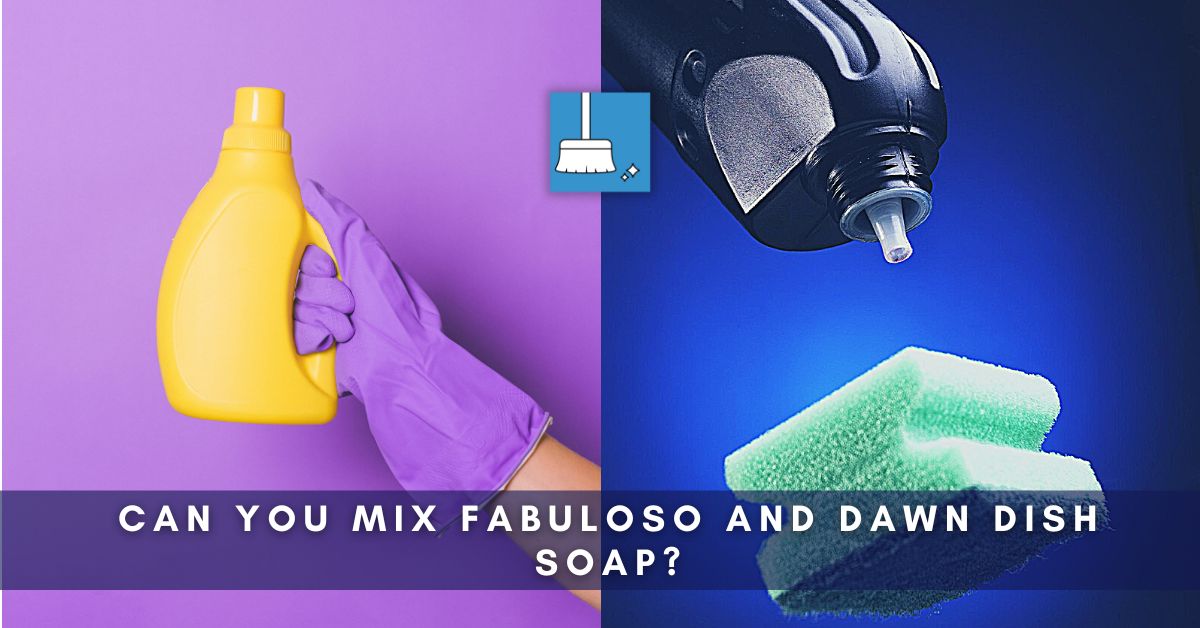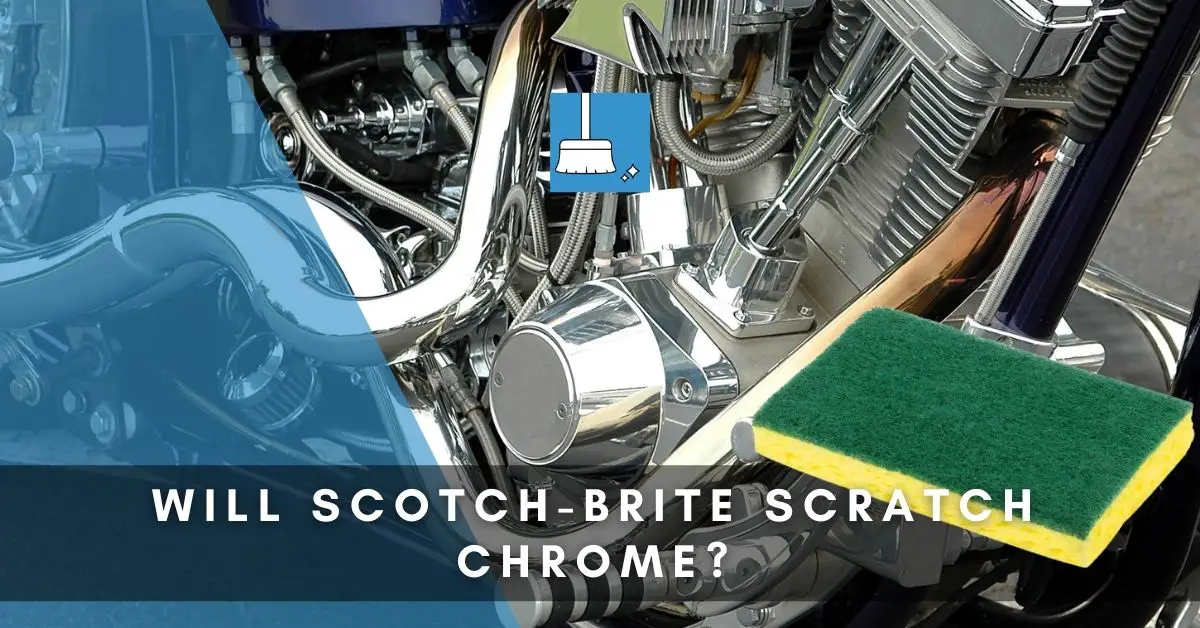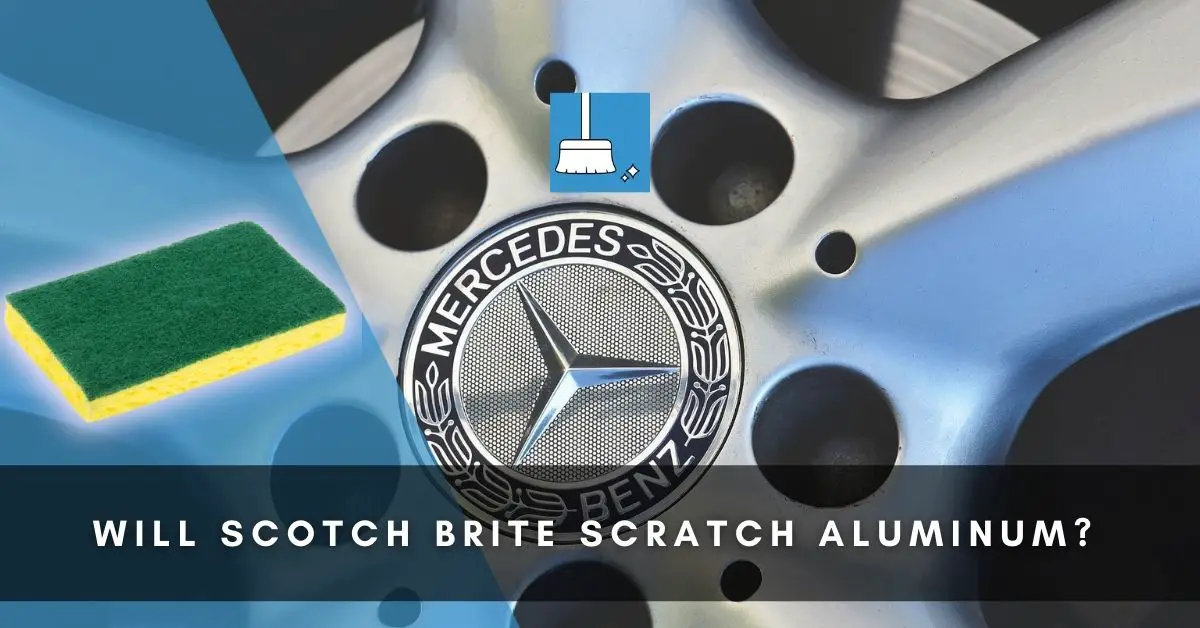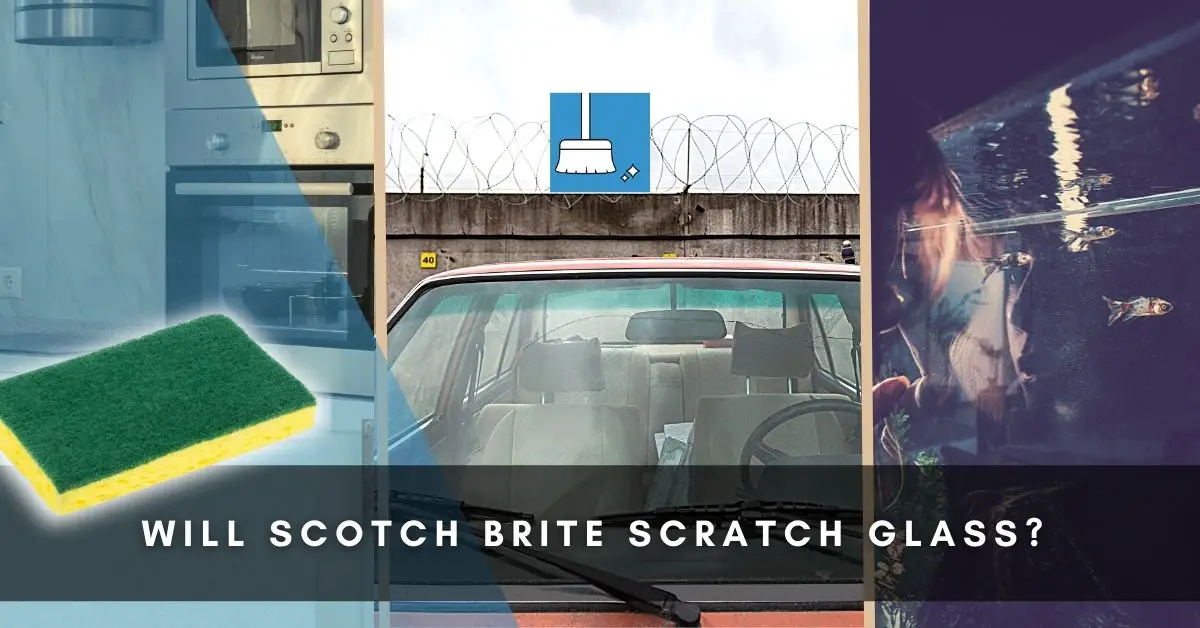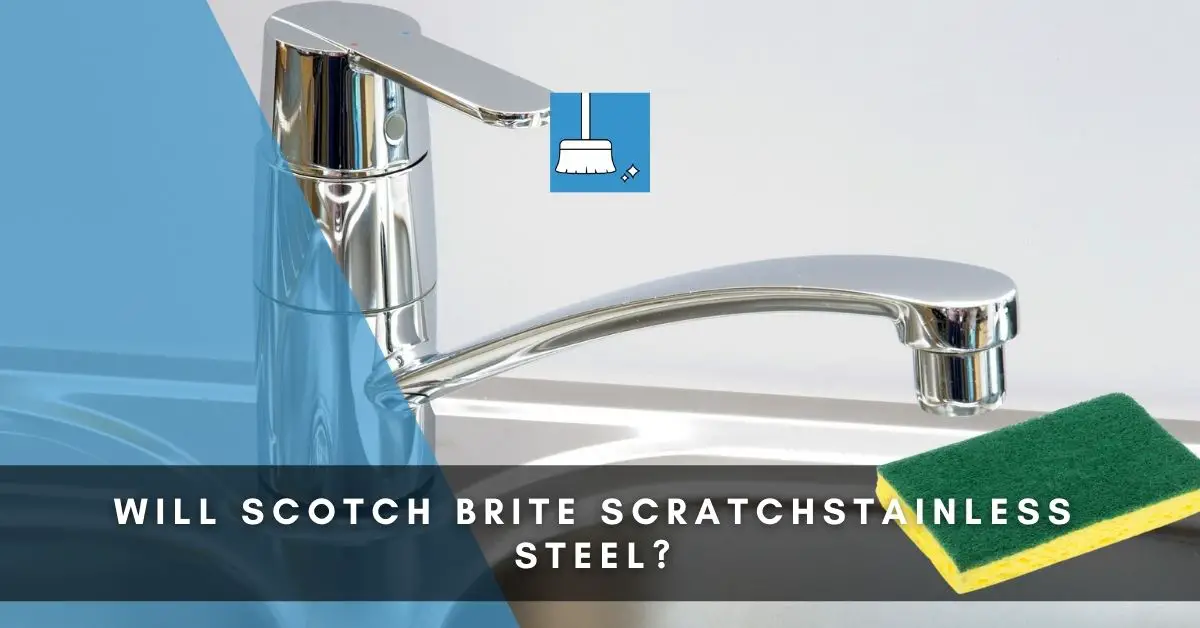You may be tempted to experiment a little when carrying out household cleaning. Cleaning products may be formulated with different ingredients, and in a bid to make them more effective or use for a certain purpose, people consider mixing two or more products together.
So you are likely considering mixing Fabuloso and Dawn Dish Soap. Before you combine these two, you should be sure you will not end up doing more harm than good.
In this article, we” uncover whether you can mix Fabuloso and Dawn Dish Soap and the general rules of mixing cleaning products.
Can You Mix Fabuloso With Dawn Dish Soap?
You can mix Fabuloso with Dawn Dish Soap, without any side effects, but the real question is, should you? And the answer is maybe. However, the ingredients in Fabuloso and Dawn Dish Soap are relatively similar and do not seem to react negatively with one another.
If there is one rule of thumb you should follow when cleaning, it’s to avoid mixing cleaning products as much as possible.
Fabuloso Ingredients
According to Fabuloso’s website, a regular bottle contains the following ingredients:
● Water – 100% safe
● Glutaraldehyde – This is primarily a disinfectant in cleaners. It could have many respiratory side effects and effects on the eyes.
● Sodium Dodecylbenzene Sulfonate – A popular surfactant in cleaning products in soap.
● c9-11 pareth-8 – Is used in many soaps. It is relatively safe for humans but toxic to aquatic life.
● Sodium Laureth Sulfate – Effective foaming agent and surfactant in detergents. However, it can cause skin irritation.
● Citric Acid – Common in cleaners and soaps for disinfecting and breaking down hard water. It is also environmentally friendly.
● Colorants – Exact ones not specified
● Fragrance – The chemicals are not stated, but Fabuloso’s scent suggests that the odor could irritate sensitive people’s lungs.
● Sodium c12-15 pareth sulfate – A surfactant and popular ingredient in many detergents.
How Does Each Ingredient React with Dawn Dish Soap
The sulfates in Fabuloso are common ingredients in detergents, dish soap, and even some skincare products. Excessive exposure can potentially harm humans, but these ingredients will not react with Dawn Dish Soap. In fact, Dawn Dish Soap contains Sodium Laureth sulfate.
Dawn Dish Soap also contains c9-11 pareth-8, unspecified colorants, and fragrance. Citric acid will not react with Dawn Dish Soap, nor sodium dodecyl benzene sulfonate, glutaraldehyde, and water, as they are all common ingredients in soaps and cleaners.
The unspecified fragrances and colorants are the only ingredients that seem capable of having adverse effects if combined. As both products have strong smells, it s not advisable for an asthmatic person or someone whose respiratory organs are sensitive to mix these products.
What Is the Kind of Solution You Get upon Mixing These Two?
Mixing Fabuloso with Dawn Dish Soap will give you an extremely foamy mixture. It will still work as a cleaner, but the scent might be overpowering. Fabuloso on its own has a powerful aroma, and when combined with Dawn, it might affect people with respiratory sensitivities.
Skin-wise, you are not likely to get irritated, but it will be in your best interest to use gloves if you must mix these two products.
Why Would You Want a Fabuloso + Dish Soap Solution?
We are going out on a limb to say that if you are considering mixing Fabuloso with Dish Sopa, you probably fall into one of these two categories:
1- You are Looking for a Sudsy Mopping Solution
Many times people want to get rid of certain stains or hard stuck dust from the floors and the first thing that naturally comes to mind is a soapy rinse. And since, you are going to mop the floor anyways, you might consider adding a little bit of dish soap to Fabuloso.
2- You Want a More Effective Cleaner
Sometimes you are faced with a seemingly impossible cleaning project and try an individual cleaner, but it does not give the desired result. So you think that if you combine more products, you will get better results as you don’t have the patience to go at it repeatedly with the same product.
This assumption is flawed as oftentimes, you will only end up with a harmful chemical mixture.
3- You Are Almost Out of Both Cleaners
Another reason you might want to mix your Fabuloso with dish Soap is if you urgently need to clean but don’t have enough of either. Combined, they might be enough to do what you want. If this is you, we advise that you don’t use this mixture to clean dishes.
However, if you are using Dawn Dish Soap in particular and want to clean the floors or other parts of your home, take a few precautions. Make sure that there is adequate ventilation, and wear gloves and a nose mask if necessary.
What Can I Mix with Fabuloso?
Water
Even the instructions on the Fabuloso product and website tell you to dilute it with water. That is because Fabuloso comes in a concentrated form and mixing it with water makes it last longer and boosts its stain-removing capacity.
Some people may also find the fragrance of Fabuloso too overpowering, and water may help to reduce it.
Hydrogen Peroxide
Fabuloso has a line of products containing hydrogen peroxide known as Fabuloso Oxy. For this reason, we can conclude that Fabuloso with hydrogen peroxide is safe. We also found that this combination makes for highly effective stain removal.
Rubbing alcohol
It is common knowledge that rubbing alcohol acts as an excellent disinfectant. So, if you are cleaning surfaces and want extra disinfection, add some rubbing alcohol to your Fabuloso and water mixture.
The icing on the cake is that due to rubbing alcohol’s fast drying time, whatever surfaces you use this mixture to clean won’t stay wet for long!
Vinegar
Fabuloso is pH neutral, while vinegar is on the acidic side. You won’t necessarily be doing yourself a disservice by adding vinegar to your Fabuloso. It might give it a cleaning boost, but your Fabuloso will also work well without it.
What Can You Not Mix Fabuloso With?
Bleach
Mixing Fabuloso and Bleach is a bad idea. One or more Fabuloso fragrances may contain ingredients like citric acid that can combine with bleach to produce chlorine gas, a very toxic gas. The gas produced may be in small amounts and not as lethal as a bleach and ammonia mixture.
Even minimal exposure to chlorine gas can do significant damage to you. You may experience nausea, shortness of breath, skin, eye and nose irritation, fluid build-up in the lungs, etc. (Source)
Fabuloso is excellent, and so is bleach, but only when they are used separately.
Other Home Cleaners
All over the internet, you will probably come across this advice wherever you look. It is in your best interest not to mix Fabuloso with other cleaning products, as many things could go wrong if you choose to.
Most cleaning products contain ingredients that may be allergenic or asthma-triggering, and combining two or more may make a much more triggering product. Besides, you might unknowingly mix chemicals that will produce toxic fumes or harmful mixtures. One such example is mixing Lysol with Fabuloso.
What Can I Mix With Dish Soap to Clean?
Isopropyl Alcohol
For a winning stain-removing mixture, go for isopropyl or rubbing alcohol mixed with Dawn Dish Soap. Dish soap such as the one produced by Dawn is powerful enough to clean various surfaces in the home apart from dishes. You can use Dawn Dish Soap, for example, to clean countertops, cabinets, sinks, etc.
When you come across stains that this dish soap cannot take care of, either isopropyl or rubbing alcohol can come in to save the day.
As a solvent, alcohol is excellent for dissolving and removing surface stains, and in addition, it also disinfects. So dish soap mixed with isopropyl or rubbing alcohol will give you a powerful stain-removing and disinfecting cleaning mixture.
Hydrogen Peroxide
There are many advantages to using this popular product with your dish soap. Hydrogen peroxide is a great disinfectant, which gives the dish soap an extra boost. However, you don’t want to use it all the time if it is not necessary, as it can cause antibiotic resistance.
Mixing your dish soap with hydrogen peroxide creates an excellent cleaning solution that is extra foamy and more effective. It will remove tougher stains that your regular dish soap will not, like burnt-on grease.
Baking Soda
Dish soap and baking soda work well together because dish soap is a great cleaner, and baking soda will work as a mild abrasive.
You will have greater scrubbing force when cleaning things like your oven, sink, cooker, etc., without scratching them. It’ll be highly effective at removing dirt and odors; as a bonus, baking soda will brighten your surface.
Water
Water is the most common thing to mix dish soap with, and there is almost nothing you cannot mix water with safely. So, consider water first when considering things to combine with your dish soap.
Diluting your dish soap with water will make it last longer and won’t weaken its cleaning abilities.
What Not to Mix with Dish Soap
Bleach
You really should not be mixing bleach with anything but water. Chorine bleach on its own is highly corrosive, and there is almost nothing you combine that it won’t react with. And bleach, on its own, is a very effective cleaner.
The California Department of Pesticide Regulation specifically warns against mixing chlorine bleach, the regular household bleach, with dish soap.
According to them, you could release some very toxic gases that would harm your eyes, lungs, and skin. You don’t need to bleach your dishes before they are clean.
Regular soap does a great job already, and you will likely find that the disadvantages of using bleach with your dish soap outweigh the possible advantages.
Vinegar
Mixing dish soap with vinegar is not exactly a bad thing. However, we would not advise that you do it simply because it is pointless.
Most dish soaps, if not all, are in the alkaline region, which is one of the things that make them good cleaners. On the opposite side of the spectrum, vinegar is acidic, and its acidity also makes it an excellent DIY cleaner.
What you will be doing by combining vinegar with dish soap is making a weaker substance, and you will have succeeded in reducing the cleaning abilities of the vinegar and the dish soap.
Hence, you’ll have a mixture that does little good. If you want to use these products, we suggest you use them separately to get the maximum benefits.
Take Away!
Home cleaners are very potent on their own, but you should avoid mixing them with other compounds or products. Unless you are a chemistry expert who carefully scrutinizes the ingredient list of every product you buy, you may unknowingly create some nasty mixtures.
You should buy a product suitable for your cleaning or research to see if you can combine your home cleaner with some non-branded cleaning products like rubbing alcohol. Also, always check the label of your products as some may specify what you should not mix them with.
Never ignore warning labels as they can potentially save your life. Lastly, if you are unsure what to do, you can call the company that manufactures your cleaning product.

